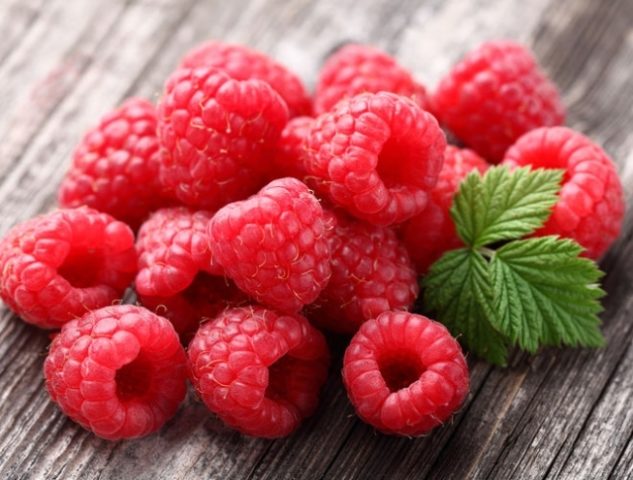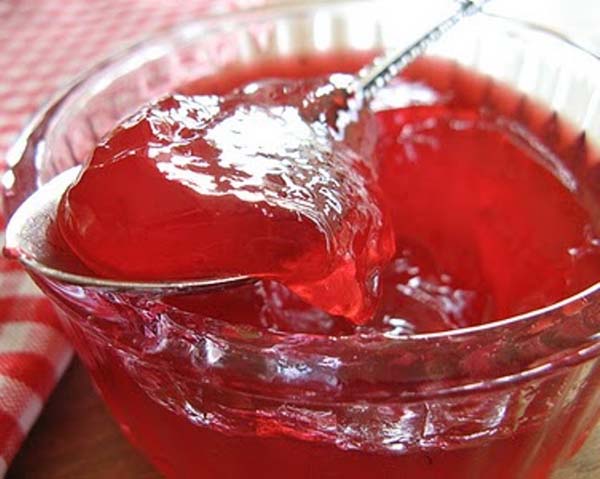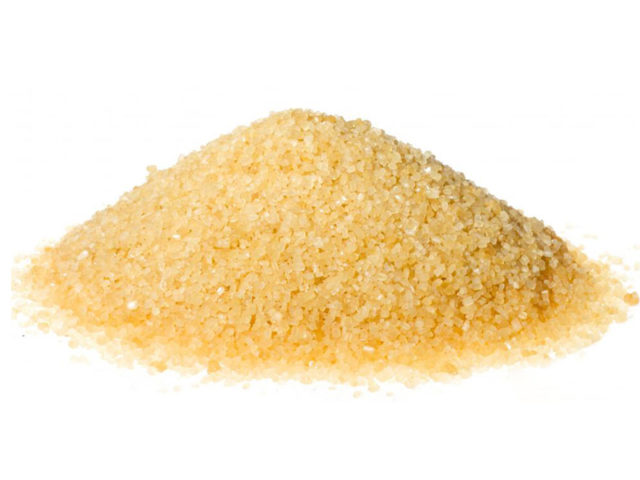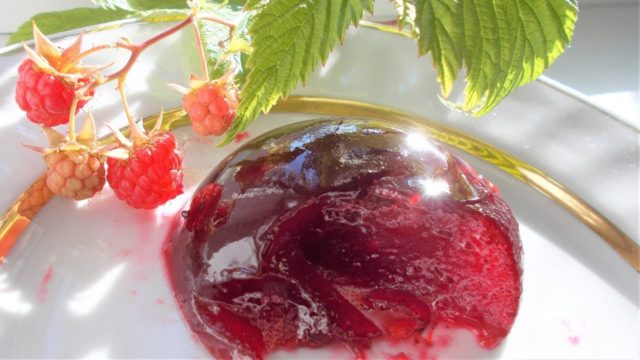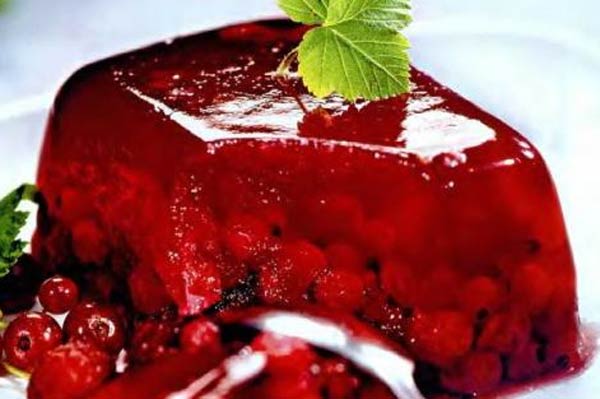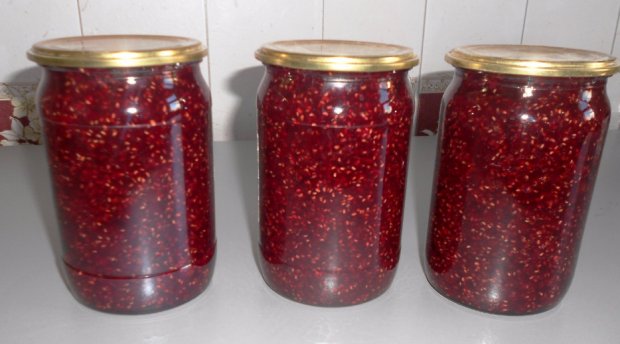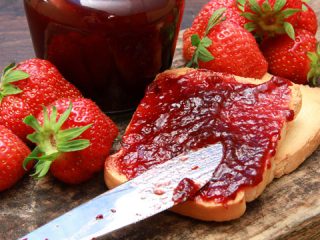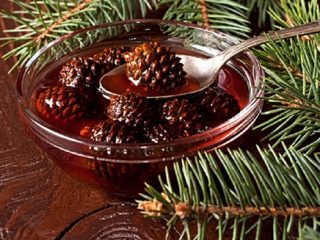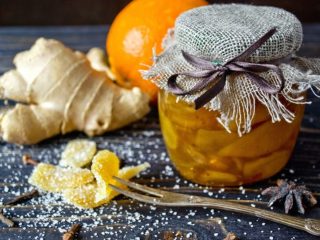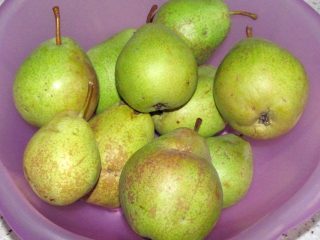Content
Raspberry jam as jelly for the winter can be prepared using various food additives. The most used are pectin, gelatin, agar-agar. They are gelling agents of both plant and animal origin. It is worth learning how to cook jam (jelly) for the winter using gelatin and pectin.
Features of the preparation of jelly raspberry jam
Probably, there is no such house where there is no jar of raspberry jam - regular or in the form of jelly. Even the laziest housewives stock up on it for the winter. The fact is that raspberry jam (jelly) is not only a delicious delicacy and an excellent dessert for tea, but also an effective remedy for colds, beriberi and other health problems that arise during the cold season.
At the first stage of making raspberry jam (jelly), it is very important to start processing the berries correctly. Raspberries have a delicate structure and require special treatment. Of course, it is better not to wash it at all. But if the source of origin of raspberries is unknown, it is not clear in what conditions it grew, it is better to process the berries. This must be done quickly and very carefully, under a light, gentle stream of water. Leave the berries on a sieve to drain the water, or place them neatly on a clean, dry towel.
Next, it is important to decide on the choice of a gelling agent necessary for the raspberry jam to thicken well and turn into jelly. There are several options:
- gelatin;
- pectin;
- agar agar.
Most often, pectin is used to make thick raspberry jam in the form of jelly. This is a substance of plant origin, which is usually obtained industrially from apples, citrus peels. Therefore, it is ideal for fruit and berry preservation, including raspberry jam in the form of jelly.
In addition, the use of pectin has a number of its advantages:
- well preserves and emphasizes the aroma of berries, fruits;
- helps to preserve the original shape of the fruit, does not contribute to their quickest digestion;
- retains the original color of the berries;
- the shortened cooking time ensures the best preservation of nutrients in the berries.
Pectin is mixed with a small amount of sugar and added to the already boiled raspberry jam. From this point on, it should not be exposed to high temperatures for more than 5 minutes. Further cooking will negate all of its gelling properties. Pectin itself is harmless, but in large quantities it can cause unwanted reactions in the body, such as intestinal obstruction, food allergies.
You can also make raspberry jam like jelly with gelatin. In addition to its gel-forming properties, amino acids and minerals bring benefits to humans. Animal gelatin is rich in such substances. It prevents the sugar found in raspberry jam or jelly from crystallizing over time.
Jelly Raspberry Jam Recipes
Many people like raspberry jam for the winter to be thick as jelly and like marmalade. So it is more convenient to put it on top of a bun covered with butter, use it in baking, when preparing sweet desserts.To obtain the desired consistency, additional ingredients such as gelatin, pectin, gelatin or agar-agar are used in the composition of raspberry jam (jelly) for the winter.
A simple recipe for raspberry jam for the winter with gelatin
Ingredients:
- raspberries (red) - 1 kg;
- granulated sugar - 1 kg;
- gelatin - 1 package (50 g).
Clean berries from dust and debris. Dry slightly by placing on a sieve. Then place in a deep enamel bowl or saucepan, cover with sugar. Wait for the juice to run. Transfer the container with raspberry jam to the stove and heat to a boil, stirring all the time. As a result, all the sugar should dissolve.
When the raspberry jam boils, remove the foam from its surface, add the gelatin previously diluted in water, which by this time is already thoroughly swollen. Stir everything together and put the finished raspberry jam with gelatin in sterilized jars. Roll up with the same clean and airtight lids.
Raspberry jam with gelatin
Ingredients:
- raspberries - 1 kg;
- sugar - 0.5 kg;
- zhelfix 2: 1 - 1 package (40 g).
Do not wash the berries if they are from your own dacha or garden. Grind with a blender, pour the puree into a saucepan. Add a package of zhelix, previously mixed with two tablespoons of sugar. Stir, bring the whole mass to a boil. Then add all the remaining sugar. Stir, wait until the berry mass boils again, cook for 3 minutes. Preserve hot raspberry jam (jelly) in sterile, hermetically sealed jars.
Raspberry jelly with pectin
Ingredients:
- raspberries - 2 kg;
- granulated sugar - 2 kg;
- pectin - 1 sachet.
Raspberries must first be prepared for cooking: lightly wash, dry, remove spoiled berries and debris. If you come across white worms, soak the raspberries in a mild salt solution and they will float up. It will be easy to separate them from the berry mass by simply draining the water.
Mash dried berries until smooth. Pour pectin into raspberry puree and place on the stove. After boiling, cook for 5-10 minutes, depending on the desired thickness. Roll up the finished raspberry jelly for the winter in small jars, clean and sterilized.
Jelly jam for the winter from raspberries and currant juice
Ingredients:
- raspberries (berries) - 1 kg;
- red currant (juice) - 0.3 l;
- sugar - 0.9 kg.
In this recipe, currant juice will replace water, give the necessary acidity and act as a jelly-forming substance. As you know, red currants contain a lot of pectin, which is an excellent natural thickener.
Mix all ingredients and put on fire to evaporate excess liquid. After half an hour, rub the raspberry puree through a sieve. Bring the resulting mass to a boil, pour into jars. Roll up raspberry jam (jelly) with clean, boiled water, lids.
Calorie content of jelly raspberry jam
Raspberry jam (jelly) prepared for the winter is a rather sweet product, which determines its high energy value. Caloric content, as a rule, ranges from 350-420 kcal per 100 g of product. The indicator directly depends on the amount of sugar added to the raspberry jam (jelly). The sweeter, the more nutritious.
Many people, fearing sugar harm to their figure, teeth, or for medical reasons, do not add it to the recipe for raspberry jam with gelatin, replacing it with natural or artificial sweeteners. Some people do without them completely, preserving raspberries with the taste data that are given to them by nature.
Terms and conditions of storage
It is better to store raspberry jam in the basement, where the temperature is kept relatively stable all year round and its indicators are much lower than in a living room. If there is none, you can do with a storage room, equipped right on the square meters of the apartment.Place such a corner for household needs should be at a considerable distance from batteries, fireplaces, stoves. An excellent option is a pantry located on an insulated loggia, where the temperature, even in the coldest winter, does not drop below +2 - +5 degrees.
Conclusion
Raspberry jam as jelly for the winter should be prepared using food additives such as gelatin, pectin. They will help to achieve the desired consistency in the finished product and will allow you to reduce the amount of sugar used when cooking raspberry jam.
